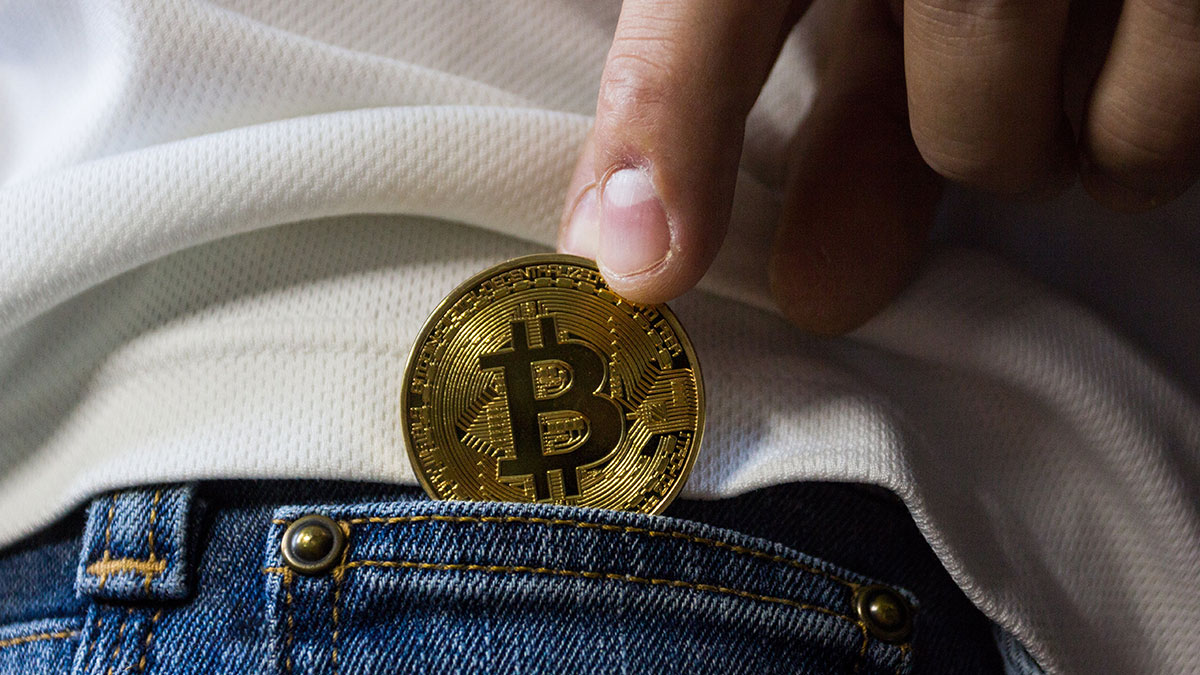If the term “digital currency” makes you feel uneasy, you’re not alone. We’ve all heard of our fair share of people falling victim to online scams and “get rich quick” schemes. But are digital currencies like Bitcoin really that scary? Or are they going to become a part of everyday life? We’re going to take you through the ins and outs of digital currencies.
An Introduction to Digital Currency – What Is Bitcoin?
Bitcoin is a form of electronic money – created by and stored in computers. It doesn’t exist in a physical sense Pound notes or Dollar bills – just in binary numbers. Bitcoins are stored in a digital wallet on a digital cloud and can be transferred directly to another person (you don’t need to use a bank or service like Paypal). Bitcoin transactions are recorded in “blocks” which are stored in a global ledger called a “block chain”.
Unlike traditional currency, Bitcoins aren’t printed or moulded. Instead they’re discovered by “miners”. People who have set up their powerful computers to “mine” Bitcoins apply complex mathematical formulas to the blocks to confirm the legitimacy of all of the Bitcoin transactions that have taken place in that block. This ensures that the system is secure and prevents false transactions. For this service, the “miners” are rewarded with 25 Bitcoins, which steadily increases the supply of the currency over time. Obviously the inner workings of Bitcoin are quite technical, but if that’s your thing, you can find out more here.
Can You Trust Bitcoin?
You may be forgiven for thinking that this sounds insane. Why on earth would you trust digital money?
The reason we trust United States Dollars (USD), British Pounds (GBP) or Indian Rupees (INR) is because we believe that they have value. We know that, at some point in future when we want to buy something, a vendor will be willing to accept our currency in exchange for goods or services. In this sense, any fiat currency is nothing more than shiny, coloured pieces of paper that we believe has value. It’s important to keep things in perspective and remember that currency usually has nothing intrinsically valuable about it. A currency’s value usually reflects the amount of faith users have in its future purchasing power.
Funnily enough, many currencies are practically digital anyway. The rise of EFTPOS, online transactions (though banks and services like OrbitRemit), and services like Apple Pay mean that we’re quickly moving towards a “cashless” society. Some sources indicate that only around 8% of money actually exists in physical notes and coins.
This means that adopting a completely digital currency like Bitcoin is entirely realistic. While it may take time, people simply need to trust Bitcoin for it to work in place of any other system. In fact, WB21, one of the world’s digital banks, has just recently announced that it will accept Bitcoin as a currency (take a look at the announcement here).
What’s in it for Me? Why Should I Bother with Bitcoin?
The biggest advantage of Bitcoin is that it isn’t controlled by a government. This means that it can’t be manipulated or tampered with. As the German people saw after World War I, governments can create money however they like, which (if no new goods are created) causes the value of the currency to fall. Bitcoin’s supply is decentralised and limited to 21 million units (this works by slowing the rate of Bitcoin mining over time – and we’re expected to hit this limit by 2140).
Bitcoin transactions are also low cost (as they don’t go through a bank – you transfer from one wallet to another). It’s also important to remember that Bitcoin is a universal currency in itself – British Bitcoins are the same as those from the US. This removes the need to convert currency depending on your geographical location. Though, don’t forget that you may need to convert your Bitcoins to USD or GBP – and there’ll be a fee associated with that.
The Risks?
As with any new technology, the risks are quite substantial. The price of a Bitcoin fluctuates wildly compared to other currencies, like the USD. Users are still sceptical about the technology, so any news that increases or decreases the general confidence in Bitcoin causes a sharp reaction in the markets (take a look at the Mt Gox collapse here, which caused the currency’s value to fall by 50%).
While some retailers support Bitcoin avidly, many are yet to adapt. Obviously being unable to buy the things you want with the currency is an issue. While this may change over time, many consumers and retailers still exclusively deal in established currencies.
Another quite glaring issue, is that Bitcoin transactions are not regulated by anyone. Transactions are irreversible once they have been recorded into a block (unlike a credit card, where charges can be cancelled later on). If you’re unlucky enough to be caught by a scam or fraudulent sale of goods, Bitcoin itself will offer you no protection.
While Bitcoin is an interesting technology, it needs time to catch on. Until then, OrbitRemit has you covered on your good old-fashioned online money transfers. Check out our calculator on the top right-hand side of the screen to see our rates!


